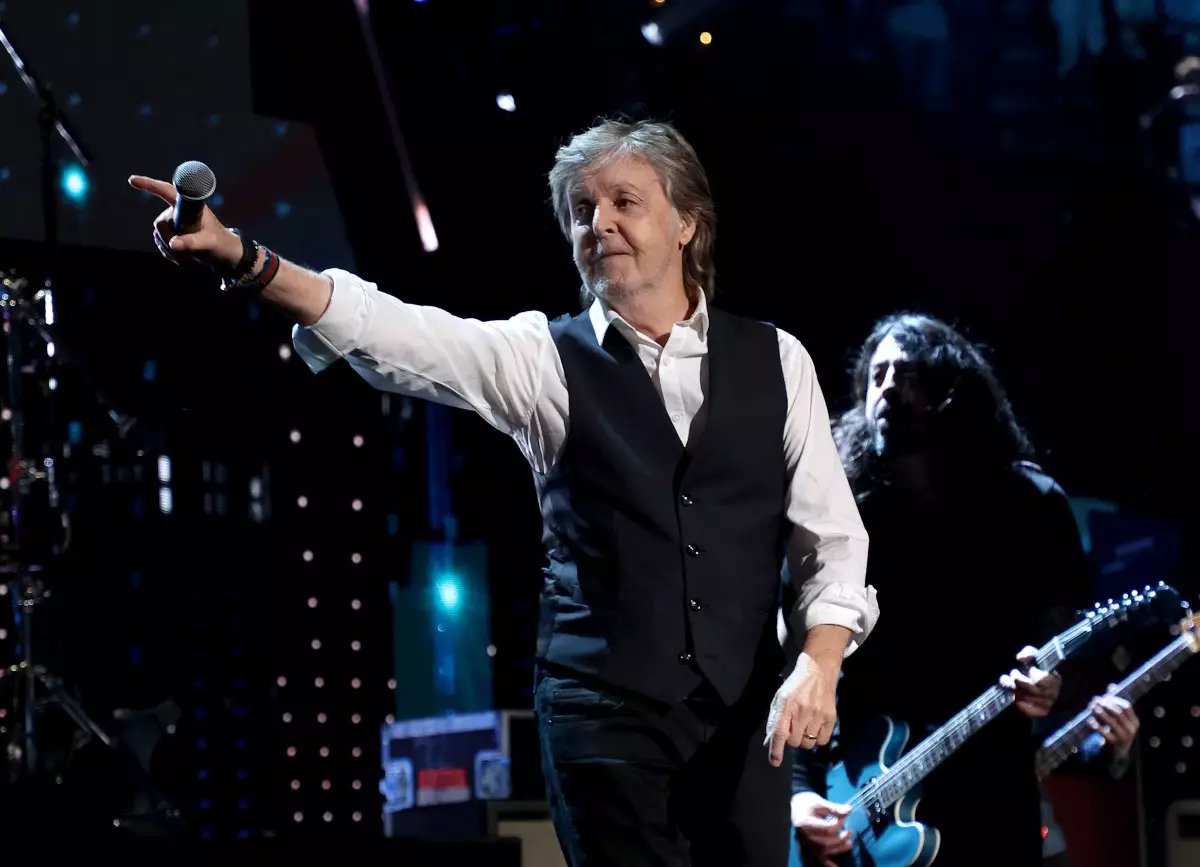The Beatles, a name synonymous with the golden age of music, finds itself in the limelight again, but not in a way that one would typically expect. Nominated for two Grammy awards this year with the song “Now and Then,” created with the help of artificial intelligence, the iconic band is challenging perceptions of music evolution. It’s astonishing that a group that has been disbanded for half a century can still compete with contemporary artists like Sabrina Carpenter, Chappell Roan, and Beyoncé. This unlikely nomination not only pays homage to their legacy but also opens up debates about the intersection of technology and music.
Paul McCartney’s decision to utilize AI in music production signals a new era where technology breathes life into old recordings. The use of AI was not to clone the legendary figures of John Lennon and George Harrison but rather to enhance their existing work. By revisiting a 1978 demo from Lennon and applying AI technology to refine its audio quality, McCartney aims to create “the last Beatles record.” This venture brings forth a pivotal conversation around the ethical use of technology in preserving and enhancing the music legacy. It accentuates how advancements can serve as a bridge between the past and future of music.
The revival of “Now and Then” draws inspiration from Peter Jackson’s acclaimed documentary series “The Beatles: Get Back.” This project helped creatively unearth the band’s dynamic by utilizing AI to separate sounds and voices from old recordings. The incorporation of such technology in the recording process not only revitalizes vintage tunes but also empowers producers like Giles Martin to deliver superior mixes, as seen in the modernization of their iconic 1966 album “Revolver.” The essence of music continues to evolve through constant transformation brought upon by innovation.
As the Grammy Awards shape up to be a rather interesting spectacle, the backdrop of the Beatles’ nomination raises questions about the state of popular music. Given that “Now and Then” holds the title of the least streamed song in its category, poses a challenge. It beckons the question: can a legendary legacy stand toe-to-toe with the modern powerhouses like Billie Eilish or Kendrick Lamar? The idea that the Beatles could snatch awards based on nostalgia rather than listening figures could fuel both criticism and admiration.
In the modern era, where music is consumed rapidly and scrutinized intensely, the competition is fierce, and the stakes are high. If The Beatles are, indeed, “more popular than Jesus,” as famously quoted, one could argue that such a cultural footprint is now shared with rising stars like Charli XCX and others. The landscape of music is continuously reshaped as it absorbs influences from technology, legacy, and emergent creativity. The 2023 Grammy nominations serve as a poignant reminder of this evolution, illustrating that music’s journey transcends time, making way for artistry in the age of AI.

